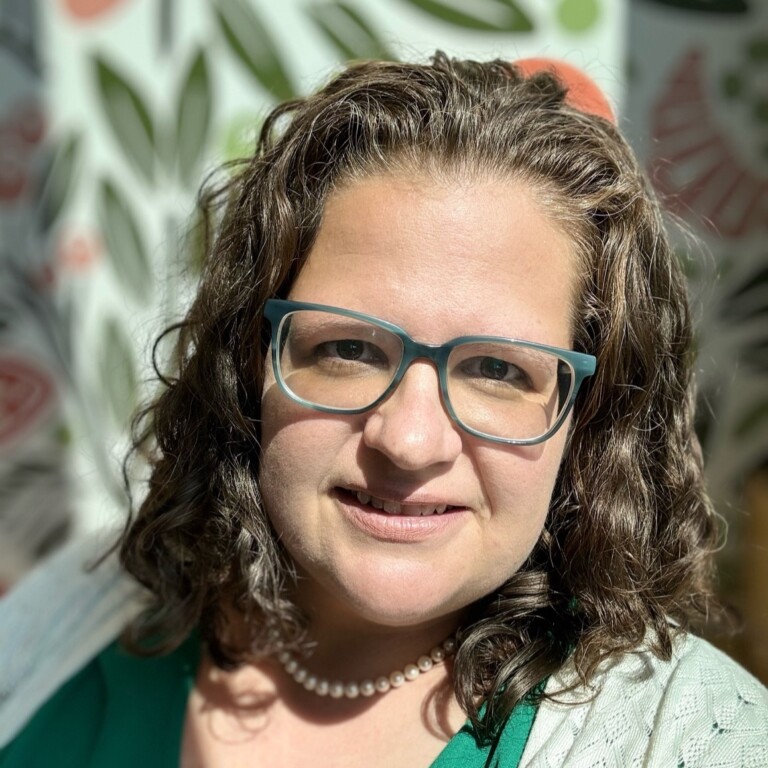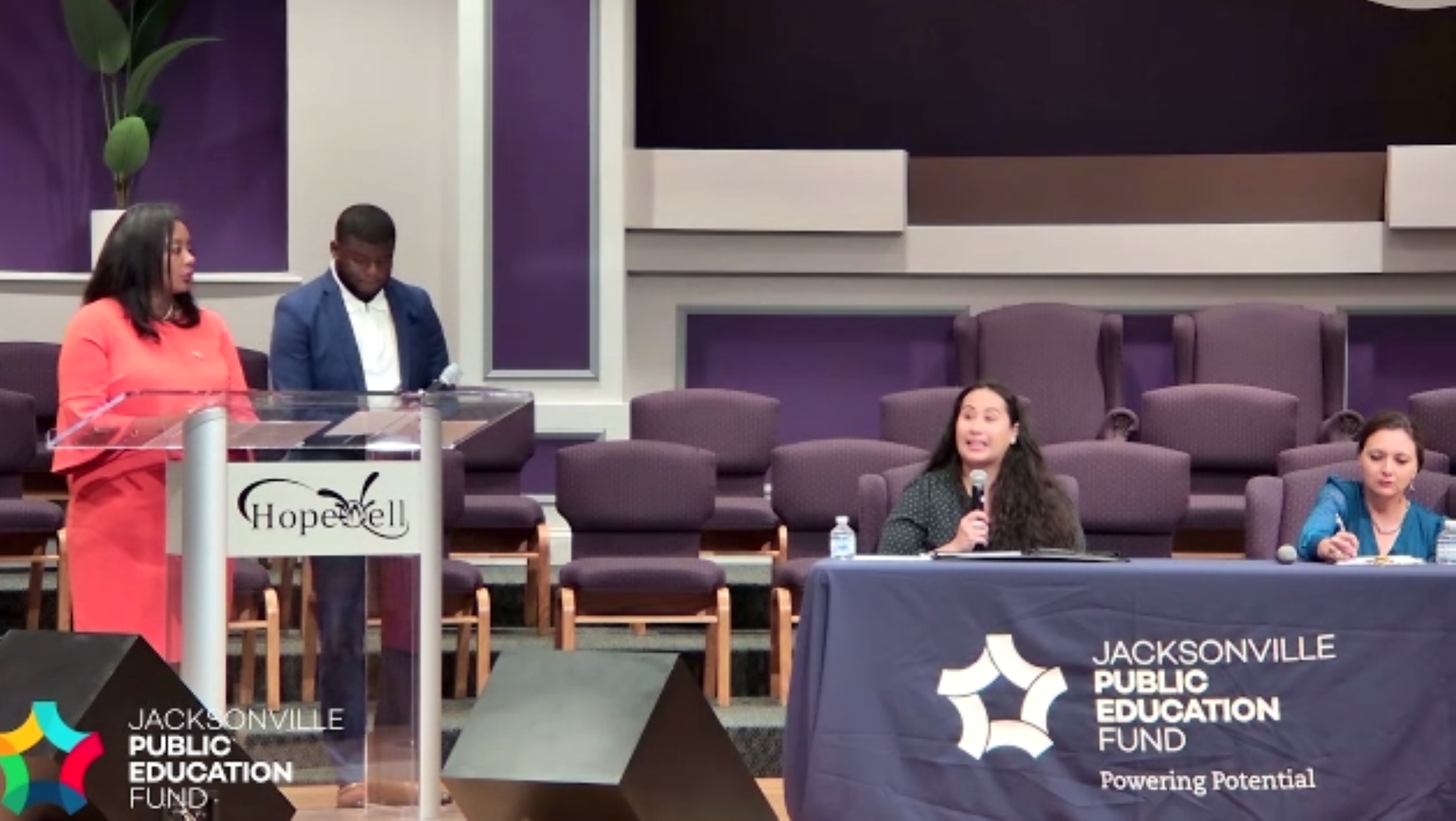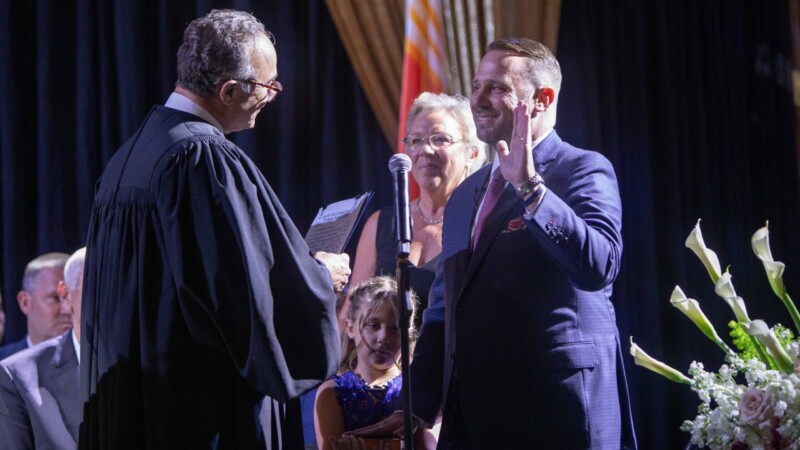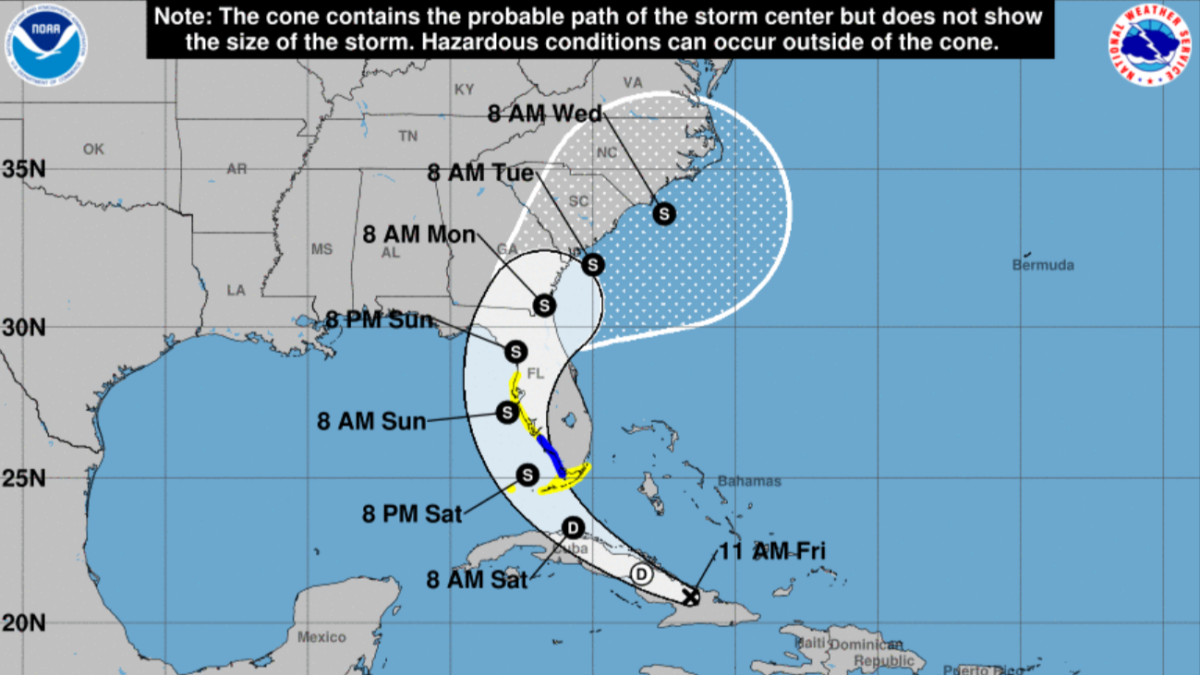Melody Bolduc and Sarah Mannion, competitors in the race to represent Duval Schools District 7, agreed more than they disagreed Thursday evening at a forum sponsored by the nonprofit and nonpartisan Jacksonville Public Education Fund.
The event was the fund’s final candidate forum and the only to feature all candidates in its respective race. At each of the prior forums, the candidate with the support of Duval’s Republican contingent canceled at the last minute.
In District 7, Bolduc has the backing of the GOP, even though Florida school board races are nonpartisan for now. She’s endorsed by Florida Gov. Ron DeSantis, the Jacksonville Fraternal Order of Police, the Duval chapter of Moms for Liberty and a smattering of local and state legislators.
“I’ve been looking forward to meeting Sarah,” Bolduc told Jacksonville Today after the forum. “I’m grateful to JPEF and the Hopewell Church for allowing us both the opportunity to share our platforms and discuss the issues.”
Mannion’s endorsements include the Duval Democrats, Equality Florida and Jacksonville’s chapter of the National Organization for Women.
Despite their clear differences in philosophies regarding social and cultural issues, Bolduc and Mannion offered broadly similar answers to many questions and differed only in the details.
Neither favors arming classroom teachers, for example, though Bolduc supports Florida’s Guardian Program when school resource officers are not available. Mannion said she would never consider letting teachers carry and would instead prioritize funding for trained resource officers.
Bolduc, a teacher, and Mannion, a lawyer, pulled from their professional experiences as they described how they would represent Mandarin and the Southside. The current rep, Lori Hershey, has served for eight years and is term-limited.
Mannion stressed the importance of holding Duval’s state lawmakers accountable to bring home as much funding as possible from Tallahassee. She said she would work toward that goal by building relationships.
“We should be a champion for our public schools,” Mannion said.
Bolduc said Duval’s current financial issues — which have district leaders exploring the possibility of school closures — require its leaders to look for creative ideas and involve the community.
“Especially considering our budget constraints, we really need to be engaging as many people as possible,” she said.
Rapidly rising construction costs are a big reason for the district’s projected $1.4 billion deficit, and changes to the way the state’s school choice programs work don’t help the problem. The state now offers vouchers to families who send their children to private schools, for example, and requires that districts share revenue collected from sales surtaxes with charter schools.
Mannion said she believes school board representatives should advocate for neighborhood schools. She called the voucher program “well-intended” but said the state’s recent expansions didn’t include limitations that would have been appropriate and helpful — for example, offering private school vouchers according to a family’s income instead.
”As a result, our public school system is hurting. That’s why we’re having some of these conversations about school closures,” Mannion said. “Our public schools are being asked to do the same job with a whole lot less.”
According to a message sent by former Superintendent Dana Kriznar in April, Duval Schools now has more than 140,000 students in its system, including charter schools and the voucher program — an increase of about 10,000 children over the last five years.
With the rise in enrollment comes more per-student state funding, but Duval also has seen a decrease in the number of students enrolled in its traditional public schools during the same time period. The district projects that just 98,000 students will be in its classrooms when school starts in a couple of weeks — in other words, the funding the district receives from the state for about 30% of its students will follow those students to charter schools or private schools.
Bolduc said the money being diverted to support school choice is a “drop in the bucket” compared to the total deficit and she believes the money should always follow the student, without exception.
“I will support students and their parents’ choice over systems every day,” Bolduc said.
She proposed searching for more creative ways to bring some of the money back to the district — perhaps by offering resources and services for homeschool families. She said families could benefit from the experience of professional teachers, and they could use their state voucher money to pay for it.
“As a district, I see an opening here for districts to support homeschoolers,” Bolduc said. “It would be amazing if it were that easy.”
Mannion said looking at charter schools and private schools through the lens of the parents who choose them over traditional public schools could provide valuable insight.
“We have to be innovative and competitive. Period,” Mannion said. “The only way we’re going to get more money, unless our revenue streams change, is by increasing enrollment in schools.”







